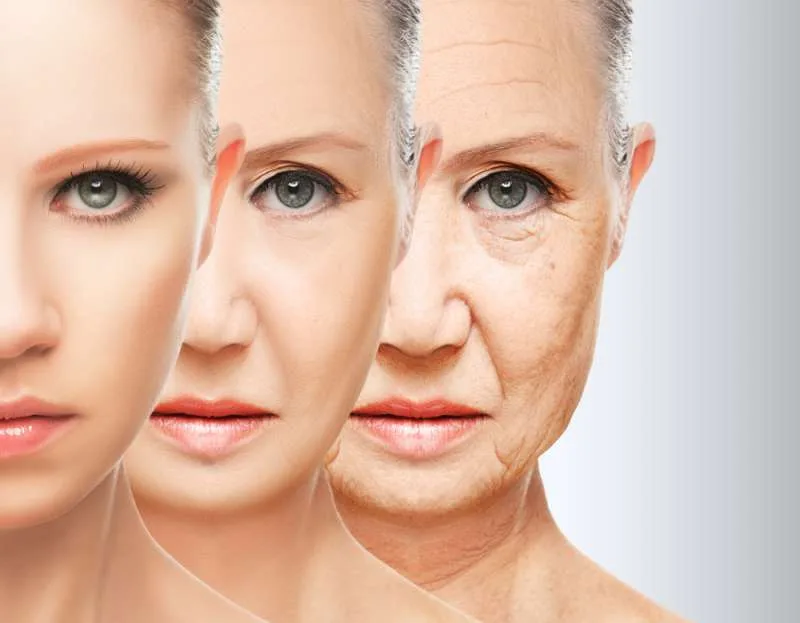If we want to reverse the aging process and promote our longevity, then it’s important to answer the age-old question of what causes aging. Not wearing sunscreen? Not eating enough blueberries? While these behavioral habits can accelerate the aging process, researchers are looking for answers to premature aging on a deeper cellular level.
As such, researchers are examining cellular senescence to determine if targeting senescent cells could reverse the aging process and promote lifespan.
What are senescent cells?
As we age, our cells become larger and they lose the ability to divide and multiply. These aged cells are then left to continue doing their jobs, or they become damaged, programming themselves to die off via apoptosis or through the immune system. Unfortunately, the immune system does weaken with age and coupled with other issues, not all of these damaged cells die off. Instead, they become “zombie cells”, lingering around and accumulating. This process is known as cellular senescence and these zombie cells are called senescent cells.
We already know all the functions that cells play in our body, so it’s fair to assume that accumulated ‘zombie cells’ may cause some damage. In fact, researchers have linked their presence to a number of issues, including inflammation and other age-related diseases such as heart disease, dementia, and cancer.
How does cellular senescence affect the body?
Senescent cells not only prevent healthy cells from functioning properly, but they also secrete harmful compounds that cause healthy cells to also become senescent. This destructive process then increases the risk for chronic inflammation, as well as many other age-related disorders.
1. It increases the risk of cancer

The risk for cancer increases as we age, so it is important to mitigate other cancer risk factors as the years go by.
While the accumulation of senescent cells can be detrimental to our health, research has found that they can also be helpful.
For instance, past research has suggested that cellular senescence may contain tumor suppressive mechanisms. However, further studies are needed to confirm the use of senescent cells as an anti-cancer therapy, especially as emerging research continues to propose that it’s more pro-cancer than anything else.
A 2020 study published in Cancers concluded that senescent cells may cause patients to be less resilient to cancer therapies, may contribute to reduced patient resilience to cancer therapies, and may trigger tumor recurrence.
2. Increases diabetes risk
In terms of people living with type II diabetes, older adults represent a majority of this demographic. That said, a paper published last year in Endocrinology revealed that cellular senescence increases the risk of type II diabetes.
Additionally, the study also found that cellular senescence may also increase the risk of diabetic complications, including nephropathy, retinopathy, and cardiovascular disease.
3. Increases risk for heart disease
The accumulation of senescent cells has been closely linked to an increased risk of various cardiovascular diseases, such as vascular aging and clogged arteries (atherosclerosis).

S_L/Shutterstock
According to a study published in Aging and Disease last year, combatting cellular senescence can help to reduce the risk for cardiovascular diseases.
4. Increases risk of osteoporosis
As the years go by, people, especially women, lose bone mass and this increases the risk for osteoporosis. Therefore, it’s important for them to protect their bone health, one of which can include targeting senescent cells. Per a study published earlier this year in March, any therapies that target senescent cells may serve as a treatment option for osteoporosis in the future.
5. Increases risk for Alzheimer’s disease
From the age of 65, the risk of Alzheimer’s disease doubles every 5 years, with prevalence rates increasing from 10% after the age of 65 to 40 % after the age of 85.
According to a study published in Nature Aging, people living with Alzheimer’s have more senescent brain cells than those without the disease.
Following the findings, the researchers believe that an effective treatment option for Alzheimer’s disease could be drugs that target senescent cells.

Combatting Senescent Cells
According to researchers, senolytic compounds can help to destroy senescent cells.
In fact, research suggests that these compounds may be effective in the management of heart disease, Alzheimer’s, and even cancer.
That said, a lot of this research relies on pharmaceutical drugs. That said, there is growing interest in natural sources of senolytic compounds, one of which is quercetin and fisetin.
Quercetin is a plant-based compound found in apples, berries, and red onions. On the other hand, fisetin can be found in strawberries and tomatoes. In fact, a Lancet study set out to identify 10 flavonoids with more potent senolytic activity and according to the findings, fisetin was the most potent senolytic.
Want to know more?
People are living longer, hence the rising interest in cellular senescence and how targeting senescent cells could reverse the aging process. That said, researchers are looking at which compounds may help us accomplish healthy aging, and one of them could be the anti-diabetic drug metformin.
References
Dehkordi, S.K., Walker, J., Sah, E. et al. Profiling senescent cells in human brains reveals neurons with CDKN2D/p19 and tau neuropathology. Nat Aging 1, 1107–1116 (2021). https://doi.org/10.1038/s43587-021-00142-3
Föger-Samwald, U., Kerschan-Schindl, K., Butylina, M., & Pietschmann, P. (2022). Age Related Osteoporosis: Targeting Cellular Senescence. International journal of molecular sciences, 23(5), 2701. https://doi.org/10.3390/ijms23052701
Hinds, P., & Pietruska, J. (2017). Senescence and tumor suppression. F1000Research, 6, 2121. https://doi.org/10.12688/f1000research.11671.1
Kumar A, Sidhu J, Goyal A, et al. Alzheimer Disease. [Updated 2022 Jun 5]. In: StatPearls [Internet]. Treasure Island (FL): StatPearls Publishing; 2022 Jan-. Available from: https://www.ncbi.nlm.nih.gov/books/NBK499922/
Narasimhan, A., Flores, R. R., Robbins, P. D., & Niedernhofer, L. J. (2021). Role of Cellular Senescence in Type II Diabetes. Endocrinology, 162(10), bqab136. https://doi.org/10.1210/endocr/bqab136
Wyld, L., Bellantuono, I., Tchkonia, T., Morgan, J., et al. (2020). Senescence and Cancer: A Review of Clinical Implications of Senescence and Senotherapies. Cancers, 12(8), 2134. https://doi.org/10.3390/cancers12082134
Yan, C., Xu, Z., & Huang, W. (2021). Cellular Senescence Affects Cardiac Regeneration and Repair in Ischemic Heart Disease. Aging and disease, 12(2), 552–569. https://doi.org/10.14336/AD.2020.0811
Yousefzadeh, M. J., Zhu, Y., McGowan, S. J., Angelini, L., et al. (2018). Fisetin is a senotherapeutic that extends health and lifespan. EBioMedicine, 36, 18–28. https://doi.org/10.1016/j.ebiom.2018.09.015





![women [longevity live]](https://longevitylive.com/wp-content/uploads/2020/01/photo-of-women-walking-down-the-street-1116984-100x100.jpg)









